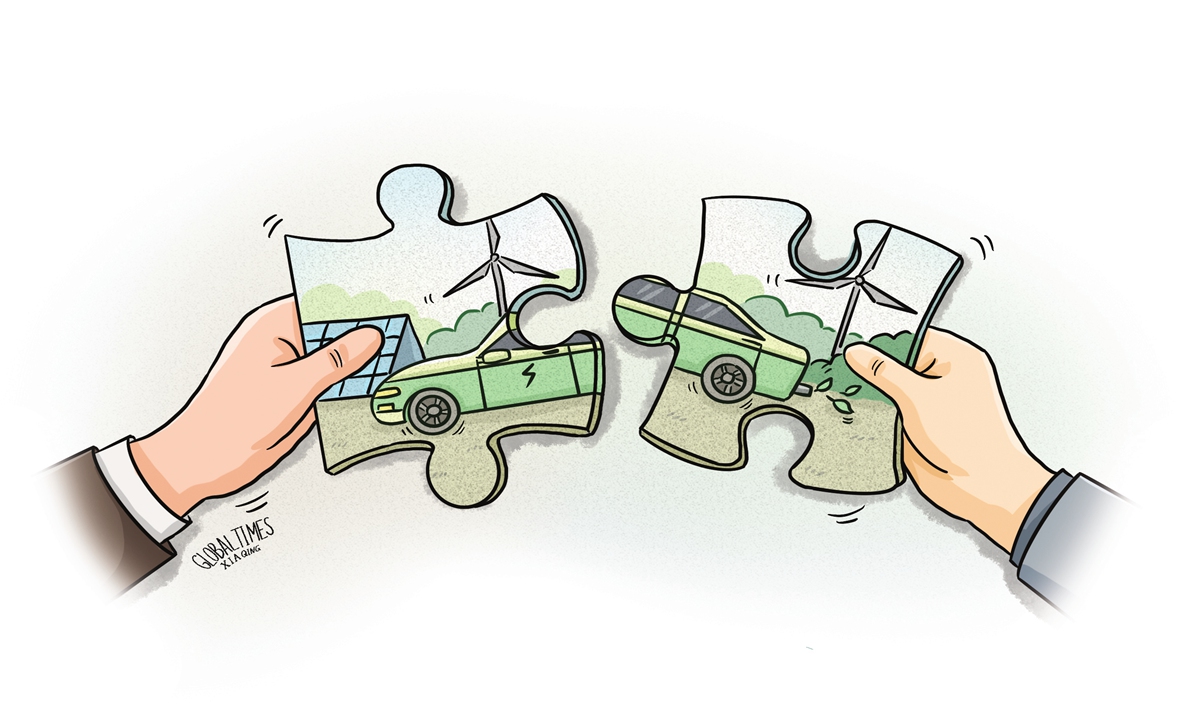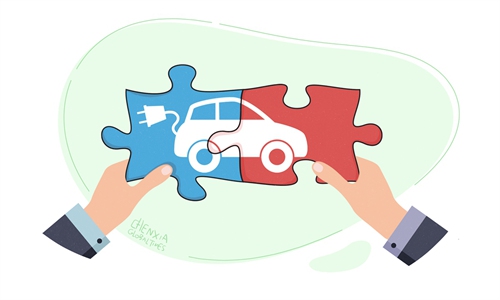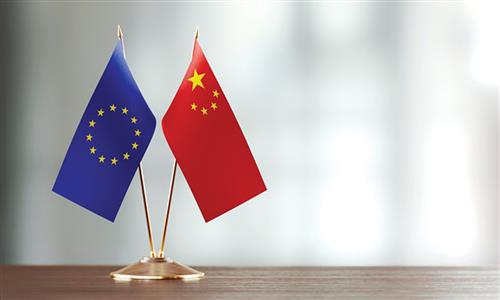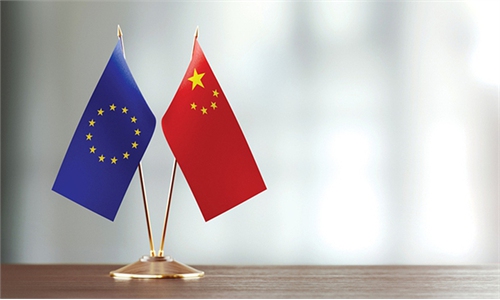
Illustration: Xia Qing/Global Times
The EU's top diplomat, Josep Borrell, completed a three-day visit to China over the weekend. His delegation also attended the 12th round of the China-EU High-level Strategic Dialogue in Beijing. In an interview with the South China Morning Post prior to his departure, Borrell said that "Europe takes China seriously," and the economic bloc has "no hidden agenda aiming at derailing" Chinese development.China treasures its relationship with the EU, always considering Europe as an indispensable trade and economic partner, and more importantly, a benign force to maintain global diversity and plurality in an increasingly volatile world. China's 1.4 billion people hope that Europe could maintain its soberness and impartiality - not to toe the political line set by the US government. The EU should judge China independently.
The US government has coerced European countries to play with bans, export controls and other restrictive measures to limit Chinese access to advanced tools and technologies, a blatant assault on China's future development prospects.
By all metrics, acting as each other's heavyweight trade partners, the EU and China have benefited a lot from their close economic relationship. The two giant economies should build up the favorable partnership, create a fair and nondiscriminatory business environment for each other's enterprises, and always stick to the win-win mentality.
However, things have not always moved in a straight line. Ever since Brussels coined the new catchall term "de-risking from China" earlier this year, which is widely seen as a parallel foreign policy reorientation by the European bloc to echo Washington's "decoupling from China" policy, the efforts of past many years by China and the EU to shore up mutual trust and close partnership have been thrown into doubt, and China-EU relations start to wade into unchartered choppy waters.
Recently, the EU has been reportedly mulling a fresh move to launch anti-subsidy investigation into China's steelmakers on the heels of another anti-subsidy probe last month into Chinese electric vehicle producers. The bloc has already imposed punitive tariffs on a total of 20 Chinese steel and stainless steel products and set import quotas for them. China has expressed its deep displeasure over those apparently protectionist measures.
The EU moves are violations of the principle of free trade and WTO rules, as they are ill-intentioned to keep Chinese EVs out of European market just because Chinese products are more cost-effective. The moves risk further disrupting global industrial and supply chains.
And more strangely, according to major Western media reports, the anti-subsidy investigation into Chinese steelmakers is part of a coordinated US-EU deal to address the "excess global steel production" problem and associated carbon emissions.
Understandably, China is dismayed as it is not difficult to conclude that "de-risking" is in essence the same thing with the "decoupling" policy. Both concepts represent economic alienation, de-globalization and fragmentation of global supply chains. Beijing has repeatedly opposed the rhetoric for the two concepts for they reflect the zero-sum game mentality.
Borrell said in his interview with the South China Morning Post that Europe hopes China "stops looking at us through the lens of its relations with others." But what the EU has spoken and done in the recent months show the clear hallmarks of the US government, including launching anti-free-trade investigations and hyping up "de-risking" rhetoric.
It is of great importance for the EU to maintain high level of political and diplomatic independence, and keep distance from the ill-willed US foreign policy of containing China's rise by launching reckless trade and technology wars. European leaders should be far-sighted and visionary, treating China's economic development as a golden opportunity to help shore up European countries' prosperity and their people's well-being through implementing genuine and win-win cooperation with China.
Borrell said that "the EU's conduct is drive by our own interests." He is right to mention that as the EU and China have forged mutually intertwined economic interactions that benefit their interests. Their economies are largely complementary and have been reinforcing one another. The two huge economies should not be misled by ideological differences or geopolitical divergences, which is being played and manipulated by Washington.
Bilateral trade between China and the EU has kept going up, amounting to more than $847 billion last year. China remains as the EU's second-largest trading partner while the EU is China's second largest trading partner in 2022. Yet as important economic and political players on the global stage, the two parties should better coordinate their stance of cooperation, steadily expand their trade volume and consequently grow each other's economic size. For the good of the whole world, the two should join hands to maintain a system of global rules and stability.
With the world facing waves of uncertainty, it will be important for the EU and China to sit down, talk, and resolve their trade and economic differences in good manners and avert fueling up tensions through imposing high tariffs and attempts at economic coercion mirroring the approach of the Trump and Biden administrations. And it is also important for the two parties to strengthen communication and make their bilateral relations more constructive and predictable, because their stable relations are able to make a great difference for the volatile world.
As Chinese officials said, China and the EU have everything to gain from cooperation, and everything to lose from "de-risking." The two economies win through closer integration. The rhetoric that interdependence is tantamount to economic insecurity is misleading and poisonous. Hopefully, Borrell's visit will help European leaders adopt a more pragmatic attitude towards building up constructive relations with China and set a firmer foundation for future cooperation between younger generations in Europe and China.
The author is an editor with the Global Times. bizopinion@globaltimes.com.cn



